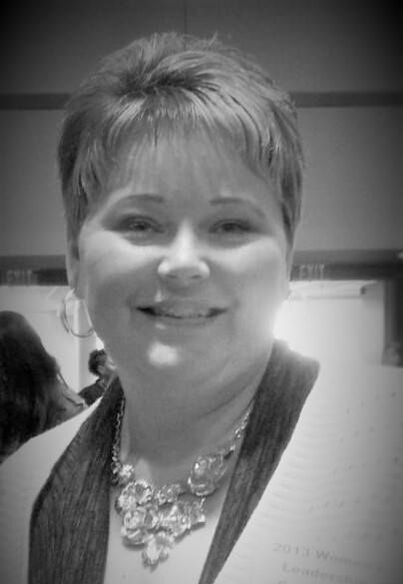 Hello Readers, It's nearly bedtime and something continues to weigh on my mind. No, it's not the million and one things I need to do before our homeschool class starts on Monday. And it's certainly not the thesis I need to be working on. It's not even the mountain of household chores that I rediculously put off today in order to Netflix and nap. It's the bothersome idea that I'm not good enough. Not good enough for my children. Not good enough as a teacher. Not good enough as a homeschool parent. You see, all day long I've been thinking about a post I saw on a facebook group. The comment was something along the lines of "...surrounded by doubt and negativity from outsiders on the choice to homeschool". I immediately thought of a woman just holding her head in her hands, feeling as though the world was out to get her. While I've only had to argue with myself when thoughts like these pop into my head, I was caught off guard by the comment and after reading her tearful pleas for support, I started thinking of how I would approach the issue. Then it occurred to me. We as homeschool parents face numerous adversities. The primary one being our own self-doubt. But to face the stigma of outsiders questioning our choice?! What insanity is this? Do we question why they send their children to conventional schools? No. Because compulsory attendance is law. But we are protected by law in our right to choose homeschool. Yet, we are seemingly at battle on a daily basis in our defense of our protected choice. Then I started thinking why does society feel like we cannot do it? What is their thinking that leads them to believe we are ruining a child's life? Then it hit me... What myths have they heard that have not been addressed?
Did you know there are a ton of myths about homeschool students? I'm sure you've heard some of them:
But if I may, please allow me to disperse these rediculous and completely false statements, from the works of Dr. Brian Ray. Dr. Ray is the epitome of homeschool studies. In fact, he has spent over 30 years studying homeschoolers and has made great advances in understanding this strange counter culture that has blossomed so rapidly in the last 30-40 years. Regarding social emotional skills, numerous studies have shown that children are first introduced to socialization through their parents with communication and participation. Parent's provide the nurturing and explanation of these settings which encourages the child to have a sense of self-worth and self-esteem. These are two very important pieces to the puzzle. Studies have also shown that children are not the proper exposure to socialization skills because like their counterparts - they are dependent upon their parents as well. POINT: Parents are the first teachers of vital social emotional development - a set of skills that a person will carry with them for the remainder of their life. As for socialization, this goes hand in and hand with the previous point. School is for learning. Outside of school is for socialization. Forced association is not socialization, especially when you are led into a classroom that is age stratified with no upward momentum. POINT: You aren't learning how to socialize in the diverse world - but rather, you are learning how to be influenced by those around you. Influence does not equal socialization. Studies have shown that homeschooled students score higher on standardized exams than their public school counterparts, regardless of the parent's level of education. Furthermore, homeschool parents do not have to be licensed teachers to educate their children. In fact, studies conducted show that less than 12 percent of home educators are formerly licensed teachers. POINT: Chill mom's and dad's... You got this. Becaue homeschool students are more invovled in community and civic groups, they are at a greater chance of learning how to socialize with people of various ages and backgrounds. POINT: Because of their exposure to these diverse groups, homeschool students are actually better at relationship building than their public school counterparts. Lazy?! Really? Not compared to conventional school students. Homeschoolers require a set of skills that public school students often lack when it comes to education. Studies show that homeschool students develop a greater level of intrinsic (self driven) motivation for learning and by the time they reach JR/SR Highschool, they are primarily independent learners. POINT: Homeschoolers develop a locus of control, as well as maintaining a higher level of "want to" learn. As for University, homeschool students are at the top of nearly every university's "wish list" for a number of reasons. These students are self-driven, have a greater appreciation for learning, and are less likely to participate in risky college behaviors. Studies suggest that the retention and completion levels of homeschool students at university are significantly higher than those of conventional students. POINT: Universities want homeschool students! So, moms and dads, grandparents, whoever you may be that has decided to take on the task of home educating your child. You can do this. Never doubt for one minute that you can't. And if you are finding yourself in the midst of a negative situation in which even one person doubts your abilities, the benefits, or your child's future, feel free to drop some hard truths on them! Tell them I told you to! Ciao! LaVonda
0 Comments
Leave a Reply. |
HELLOWelcome! My name is LaVonda. I am the wife of Rodney, the mom of 5 remarkable kids (well, 2 are adults now), an avid homeschooler, blogger, and sociologist. I am blessed with the ability to spend my time sharing our homeschool and life experiences with you. It is my hope to provide you with motivation, ideas, and some candid stress-relief through my blog - Mom's Scribe! Grab a cup of coffee, sit on down, and make yourself at home! Past Scribes
August 2020
Categories
All
|

 RSS Feed
RSS Feed
